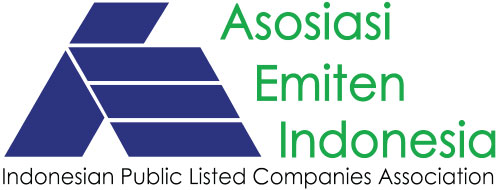
Social Aspects and Issues in Social Life Cycle Assessment (S-LCA)
Social Life Cycle Assessment (S-LCA) is a method used to evaluate and measure the social impact of a product, service, or process throughout its life cycle. S-LCA encompasses all stages, from raw material extraction, production processes, distribution, use, to the end-of-life phase of the product. Unlike life cycle assessments that focus on environmental aspects, S-LCA emphasizes the social impacts on stakeholders such as workers, local communities, consumers, and the government.
A crucial element in S-LCA is understanding the social aspects and issues that are the main focus in this assessment process. Social aspects refer to various factors affecting stakeholder well-being, while social issues are problems that may arise throughout the life cycle of a product or service.
Several key social aspects assessed in S-LCA include worker health and safety, human rights, working conditions and hours, gender equality, community empowerment, living conditions, and contributions to the local economy and job creation. For instance, the health and safety aspect highlights the need to ensure safe and comfortable working conditions. This includes identifying and mitigating risks of workplace accidents, exposure to hazardous materials, and implementing safety measures.
Human rights are also a critical aspect of S-LCA. Companies must ensure that the fundamental rights of workers and communities are respected, including the right to work in an environment free from discrimination and harassment, and the right to organize and engage in collective bargaining for worker welfare. In addition, assessing working conditions and hours is essential, ensuring that workers receive fair wages, reasonable working hours, and a balanced work-life relationship.
Gender equality and social inclusion are also focal points in S-LCA. Companies need to ensure that all employees have equal opportunities, regardless of gender, race, religion, or background. It's equally important to empower vulnerable groups and promote social inclusion in the workplace so that every worker feels valued and has the opportunity to grow.
The community empowerment aspect is also evaluated in S-LCA. Companies are expected to actively participate in supporting local community development, creating economic opportunities, and engaging in activities that encourage community involvement in decision-making processes. The impact of products or services on the quality of life of nearby communities, including access to education, healthcare, and housing, is also a key consideration in S-LCA.
On the other hand, common social issues identified in S-LCA include child labor, forced labor, low wages, discrimination, and impacts on local communities. For example, in some industries, issues like child labor and forced labor are still prevalent in supply chains. Hence, companies must be proactive in identifying and addressing such risks to ensure compliance with national and international human rights standards.
Moreover, issues such as low wages and income inequality are also areas of concern in S-LCA. Companies must ensure that workers receive fair compensation that meets their basic needs. Discrimination and social injustice, such as unfair treatment of workers based on gender, race, or background, should also be prevented and addressed seriously by companies.
The impact on local communities is equally important. Corporate activities can have significant effects on the lives of nearby communities, affecting access to natural resources, job opportunities, and infrastructure development. S-LCA helps companies evaluate how their activities impact communities, ensuring that they contribute positively to local welfare.
S-LCA serves as a crucial tool in helping companies ensure that their products and services are produced ethically and responsibly. By understanding and addressing these social aspects and issues, companies can enhance their social performance, maintain their reputation, and contribute to the overall well-being of society and stakeholders. Additionally, implementing S-LCA supports companies in achieving their Environmental, Social, and Governance (ESG) goals and demonstrating their commitment to sustainability.
For instance, in the textile industry, issues such as child labor, low wages, and unsafe working conditions are often concerns. Through S-LCA, textile companies can identify areas that need improvement, such as ensuring their suppliers do not employ child labor and provide fair wages to workers. This not only helps companies meet social standards but also enhances their image and reputation among consumers and investors.
In conclusion, understanding social aspects and issues in S-LCA is essential for companies aiming to operate responsibly and sustainably. S-LCA provides clear guidance on how companies can assess and improve their social impact, contributing to more equitable and sustainable development both locally and globally.




 Back to Home
Back to Home







